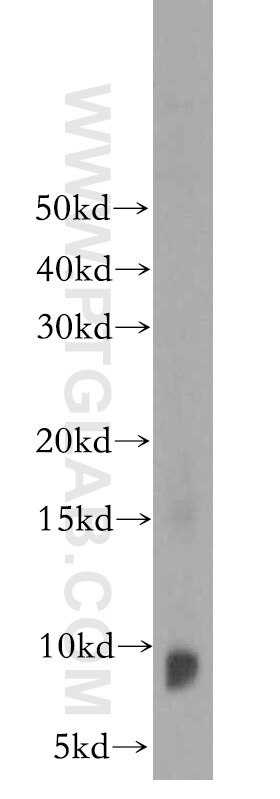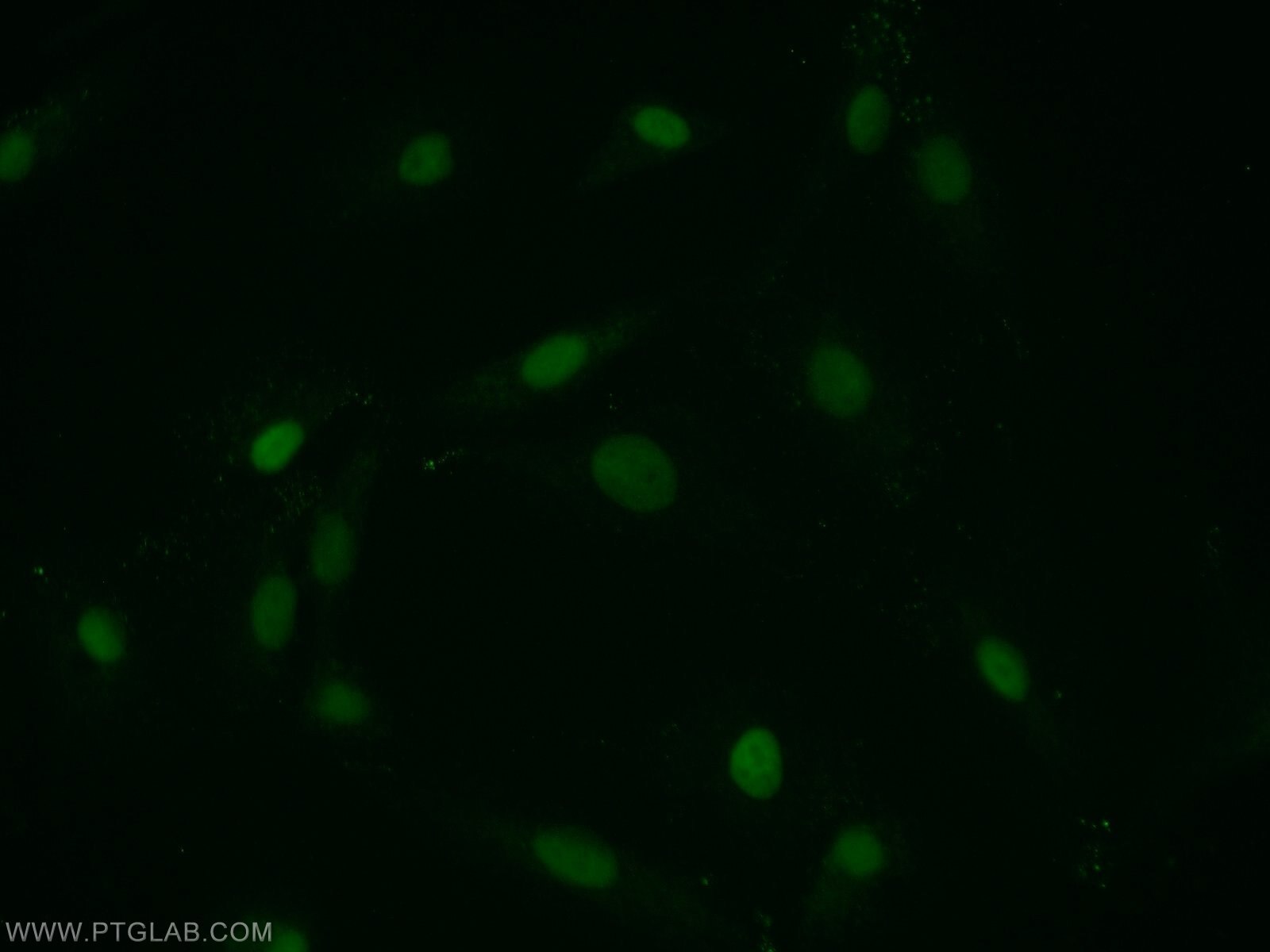PTMS Polyklonaler Antikörper
PTMS Polyklonal Antikörper für WB, IF/ICC, ELISA
Wirt / Isotyp
Kaninchen / IgG
Getestete Reaktivität
human
Anwendung
WB, IF/ICC, ELISA
Konjugation
Unkonjugiert
Kat-Nr. : 12106-1-AP
Synonyme
Galerie der Validierungsdaten
Geprüfte Anwendungen
| Erfolgreiche Detektion in WB | U-937-Zellen |
| Erfolgreiche Detektion in IF/ICC | A549-Zellen |
Empfohlene Verdünnung
| Anwendung | Verdünnung |
|---|---|
| Western Blot (WB) | WB : 1:200-1:1000 |
| Immunfluoreszenz (IF)/ICC | IF/ICC : 1:10-1:100 |
| It is recommended that this reagent should be titrated in each testing system to obtain optimal results. | |
| Sample-dependent, check data in validation data gallery | |
Produktinformation
12106-1-AP bindet in WB, IF/ICC, ELISA PTMS und zeigt Reaktivität mit human
| Getestete Reaktivität | human |
| Wirt / Isotyp | Kaninchen / IgG |
| Klonalität | Polyklonal |
| Typ | Antikörper |
| Immunogen | PTMS fusion protein Ag2751 |
| Vollständiger Name | parathymosin |
| Berechnetes Molekulargewicht | 12 kDa |
| Beobachtetes Molekulargewicht | 10-12 kDa |
| GenBank-Zugangsnummer | BC017025 |
| Gene symbol | PTMS |
| Gene ID (NCBI) | 5763 |
| Konjugation | Unkonjugiert |
| Form | Liquid |
| Reinigungsmethode | Antigen-Affinitätsreinigung |
| Lagerungspuffer | PBS mit 0.02% Natriumazid und 50% Glycerin pH 7.3. |
| Lagerungsbedingungen | Bei -20°C lagern. Nach dem Versand ein Jahr lang stabil Aliquotieren ist bei -20oC Lagerung nicht notwendig. 20ul Größen enthalten 0,1% BSA. |
Hintergrundinformationen
PTMS, also named as Parathymosin, is a small nuclear protein that can physically interact with glucocorticoid receptors (GR) and histone H1, respectively, and can serve as a coactivator of GR (PMID: 16150697; PMID: 15716277). It is widely distributed in mammalian tissues. Catalog#12106-1-AP is a rabbit polyclonal antibody raised against the full-length of human PTMS. The MW of this protein is 12 kDa, and this antibody specially recognises the 12 kDa protein.
Protokolle
| Produktspezifische Protokolle | |
|---|---|
| WB protocol for PTMS antibody 12106-1-AP | Protokoll herunterladen |
| IF protocol for PTMS antibody 12106-1-AP | Protokoll herunterladen |
| Standard-Protokolle | |
|---|---|
| Klicken Sie hier, um unsere Standardprotokolle anzuzeigen |



